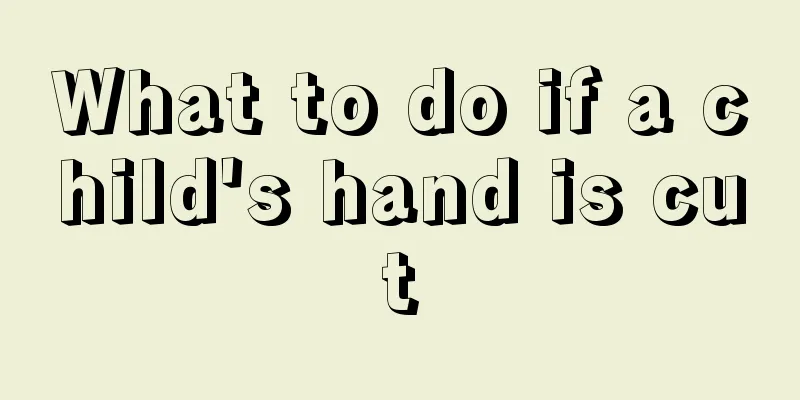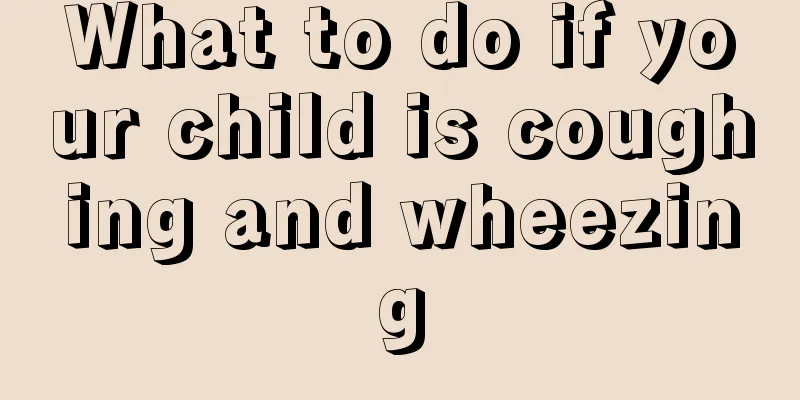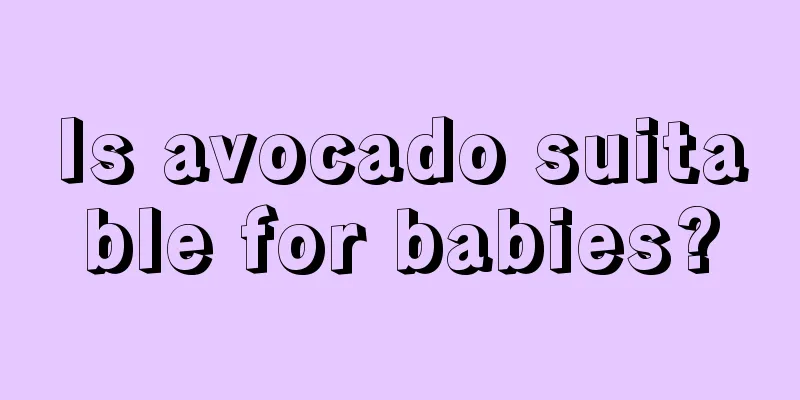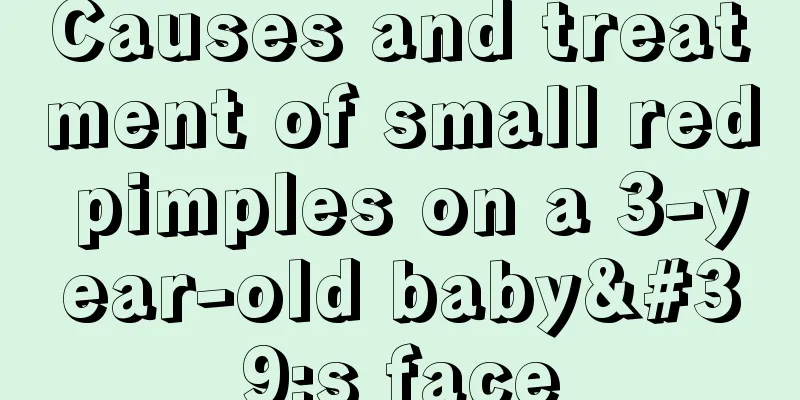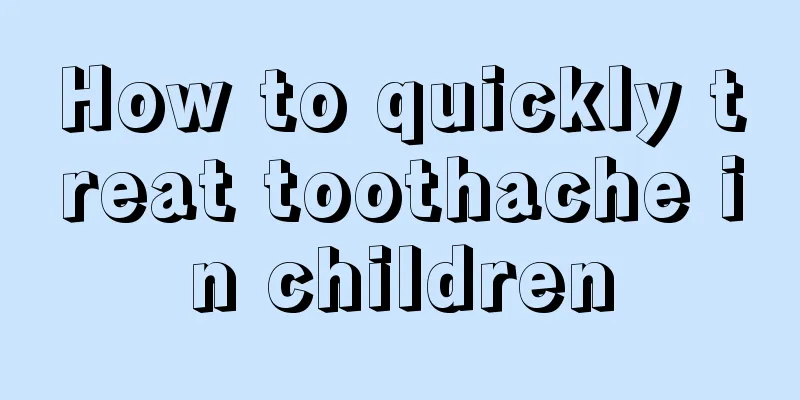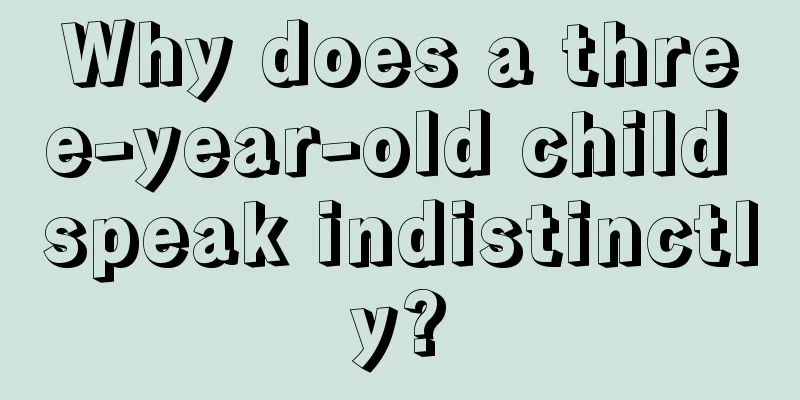Sleeping with a bottle in mouth will affect the growth of baby's teeth
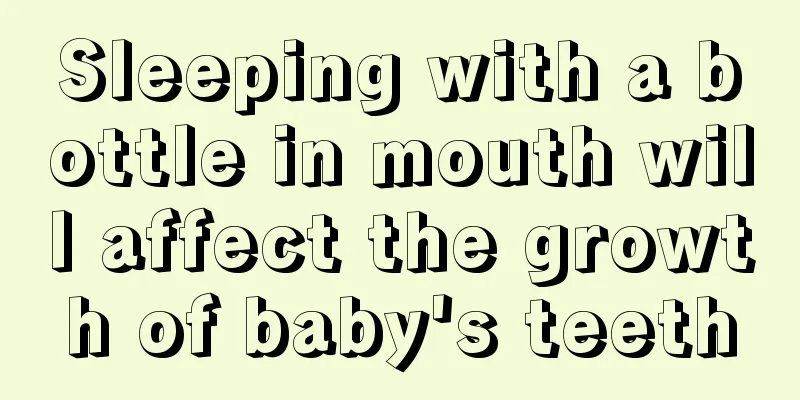
|
When sleeping, the baby's mouth secretes less saliva than when awake, and the residual food in the mouth cannot be flushed away in time, providing sufficient nutrients for caries-causing bacteria. Whether it is milk, sugar water or fruit juice, it contains carbohydrates, which can be broken down by cariogenic bacteria to produce acidic substances that corrode teeth. Although baby's teeth are very strong, they cannot withstand the torture day after day, and eventually form "baby bottle caries"! Move: Every time after feeding or drinking sugary drinks, the mother should give the baby some boiled water to rinse the mouth, and do not let the baby develop the habit of sleeping with the bottle in his mouth. If the baby already has this bad habit and it is difficult to correct it immediately, the mother can use a pacifier instead of a bottle. 2. Mouth breathing The baby's mouth is always open when sleeping, and it feels like he is breathing through his mouth, with slight snoring from time to time. Is the baby having a stuffy nose? But the baby doesn't have a cold? The baby often drools when sleeping with his mouth open! Why is this happening? Under normal circumstances, babies breathe through their noses. When nose breathing is blocked, babies have to breathe through their mouths. It can be said that mouth breathing is not the baby's fault, but the mother is too careless and did not discover or pay attention to the reasons that cause the baby to breathe through the mouth. If your baby suffers from diseases such as rhinitis or adenoids hypertrophy, his nasal passages are blocked, especially when sleeping, and he will develop a habit of mouth breathing. Long-term mouth breathing while sleeping can easily affect the normal development of a child's face, causing an ugly appearance, such as a sunken nasal root, atrophied nasal wings, crowded teeth, protruding upper front teeth, high arched palate, etc. At the same time, the child's expression will be dull and lack of expression. The baby's tongue and mandible recede, which will cause the upper jaw to protrude, the upper dental arch to be narrow, and the teeth to be crooked. Move: When a baby has a cold, his nose will be blocked for a few days. If the nose is always blocked, you need to find out the cause. If you find that your baby often breathes through his mouth, you should take him to the hospital for a detailed examination to eliminate the cause. 3. Chewing on one side Babies are prone to develop unilateral chewing habits in the later stages of their deciduous teeth development. As their deciduous teeth fall out, the normal chewing function of one side of their teeth is affected, so they can only eat with the other side. If parents do not correct it over time, it will cause asymmetry in the development of the left and right sides of the face. The side that is not often chewed is more prone to plaque accumulation due to the lack of food flushing, resulting in caries and other periodontal diseases such as red, swollen, painful, and bleeding gums. Due to excessive use of one side of the teeth, the teeth are severely worn and dentin hypersensitivity occurs. The teeth will be very painful when exposed to cold, hot, sour, sweet and other stimuli. Especially when eating, in order to avoid pain, the baby will unconsciously chew food with the other side without caries. Unilateral chewing will prevent the jaw and facial muscles on the side that is not chewing food from getting exercise, while the other side will have frequent chewing movements and overdeveloped muscles, causing asymmetry on both sides of the face and affecting the baby's facial appearance. Move: If you find that your baby has tooth decay, you must treat it in time to prevent unilateral chewing. In addition, when eating, parents may wish to remind their babies to use both teeth. |
<<: What to do if your child has shingles
>>: What are the symptoms of calcium deficiency in children?
Recommend
Do children have faster heart rates than adults?
Everyone's heartbeat speed is different in da...
Why do children have slow tooth replacement?
Children will always encounter problems of one ki...
What to do if your child stutters
Parents are very worried about their children'...
What are the causes of indigestion in two-month-old babies?
We all know that many children nowadays are fed w...
Treatment cycle and related treatment methods for neonatal sepsis
The treatment cycle of neonatal sepsis causes our...
Reasons why two-year-old babies suck their fingers
Most of the time when babies learn to recognize a...
Is it normal for baby's stool to be green?
All issues related to the baby's health and d...
Can children have body odor?
The real name of body odor is bromhidrosis. Body ...
Hard pimples on baby's body
During the growth and development stage, babies w...
Causes of urticaria in children
Although there are many types of diet nowadays, t...
How to feed newborns, grasp the following four points
The diet of a newborn is very important, so how s...
What are the sequelae of children's fever and convulsions?
Some high-risk diseases often occur in children, ...
Baby's nose has phlegm and can't be discharged
When a baby has a cold, not only will there be to...
What should you prepare for when your baby is born?
Many parents don't know what to prepare for t...
What kind of children can grow taller?
Many parents worry about their children's gro...

